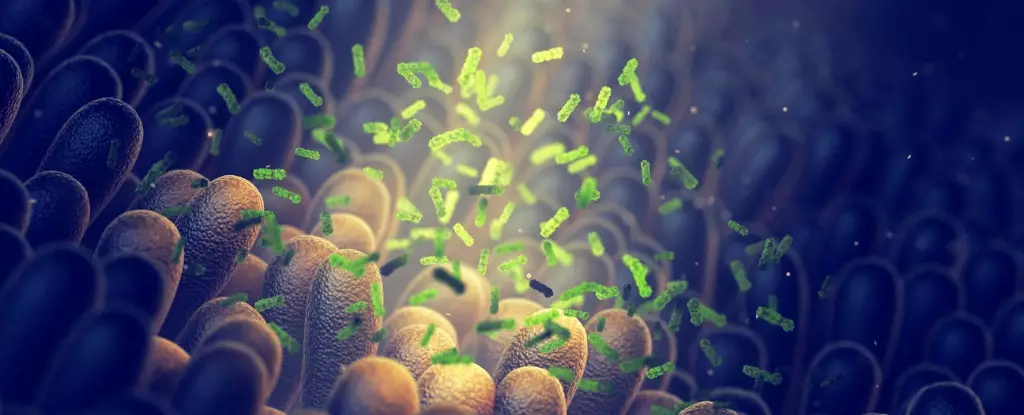The rise of antibiotic-resistant bacteria poses a significant threat to public health worldwide. As bacteria continue to outmaneuver our current arsenal of antibiotics, scientists are turning to the human gut microbiome for potential solutions. This competitive environment, home to around 100 trillion microbes, has become a focal point in the search for new ingredients to combat disease. A recent study conducted in the US examined gut microbiomes from 1,773 individuals and identified 444,054 proteins with antibiotic potential. Among the 78 most promising candidates synthesized and tested in the lab, an impressive 70.5 percent displayed the ability to combat bacteria, hinting at the vast array of bug-fighting substances within our gut.
One standout protein, prevotellin-2, demonstrated antibacterial properties on par with polymyxin B, a leading antibiotic used to treat infections resistant to other drugs. This discovery suggests that mining the human microbiome for novel antimicrobial peptides could offer a promising avenue for researchers and healthcare providers alike. While challenges remain in converting these proteins into viable antibiotics, the initial findings are encouraging, particularly if they prove to be as effective as existing ‘last resort’ drugs. Notably, the identified proteins differ structurally from conventional antimicrobial molecules, potentially paving the way for innovative approaches to combating superbugs.
The traditional process of discovering antibiotics in the environment is time-consuming and labor-intensive, prompting researchers like César de la Fuente to seek out natural sources that can be harnessed more efficiently. With antibiotic resistance on the rise and its implications for global health becoming increasingly dire, the need for novel antimicrobial agents is urgent. The innovative findings from investigations into the human gut microbiome underscore the adaptive nature of our microbiome and its potential to yield targeted antimicrobial therapies. “It’s such a harsh environment,” remarks de la Fuente, highlighting the complex interplay of bacteria within the gut that drives evolution and survival.
As scientists continue to explore the microbial world within us, the prospect of discovering new classes of antibiotics from the human gut offers hope in the battle against antibiotic resistance. This shift towards leveraging our own biological resources for drug development represents a paradigm shift in the field of antibiotic research. By tapping into the rich diversity of our gut microbiome, we may unlock a treasure trove of antimicrobial compounds that could revolutionize the way we combat infectious diseases. While much work lies ahead in translating these discoveries into clinical applications, the potential impact on public health and patient care is immense. By harnessing the power of nature’s own defenses, we may find a sustainable solution to an escalating global health crisis.


Leave a Reply